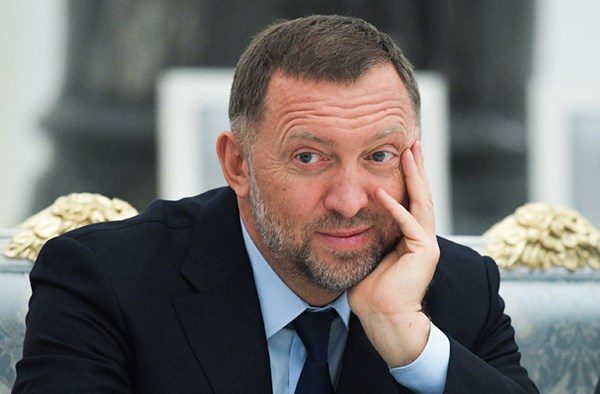Russian tycoon Deripaska disagrees with the USA’s conditions for removing his company RUSAL from the sanctions list
Oleg Deripaska, Russian oligarch and President of United Company RUSAL disagreed with the conditions set by the US Treasury Department for removing the aluminum company from its sanctions list, RBC news agency reports citing its source who is familiar with the process. “The conditions set by OFAC (the US Treasury Department’s Office of Foreign Assets Control) are unacceptable and make no economic sense. It is not possible to accept them,” the source said.
RBC reports that a source in the Russian government also confirmed this information. According to the RBC's source, the OFAC’s position was not constructive and that the conditions set by Americans were “knowingly impossible and blatantly bonded.”
“It is highly possible that negotiations will come to a dead end due to the impossibility of implementing the OFAC conditions,” the source of RBC suggested but did not disclose the content of the US Treasury’s proposals. Earlier, a Bloomberg source familiar with Deripaska’s position revealed that he considered the conditions of OFAC inadmissible. UC Rusal’s representative refused to comment.
The sanctions against Deripaska and his company were imposed by the US Treasury in April. Later, the Treasury noted that restrictions could be lifted if he relinquished control of the companies. In May, Deripaska left the Board of Directors of En+ Group.
On July 28, the United States Secretary of the Treasury Steven Mnuchin stated that “the goal [of the sanctions] was to change the oligarch’s behavior.” He noted that the US Treasury was in productive talks with Rusal to remove it from Washington’s sanctions list. Lord Gregory Barker, Chairman of the Board of Directors of En+ formed the plan for removing the sanctions.
Barker’s plan contains three actionable tasks. These are the reduction of Deripaska’s share in En+ to lower than 50%, thereby removing his controlling interest in En+ and Rusal, his expulsion from the Board of Directors of both companies, and the replacement of Deripaska’s representatives with an absolute majority of independent directors.
Deripaska has already resigned from the Board and gave written assurances that he would not be re-elected, as stated in the press statement of Mercury, the company that lobbies Deripaska’s interests in the USA. In addition, General Director Alexandra Buriko and seven members of the Board nominated by the Russian businessman left UC Rusal. The General Director Maxim Sokov, who is affiliated with Deripaska, left En+.
In late July, Barker asked the OFAC for extra time to complete the plan and the office approved the request and provided a new license. The goal is to reduce share ownership of Deripaska and his family in En+ capital at the request of the US Treasury. Barker’s plan suggests that the shares should be transferred to organizations or trustees approved by the US Treasury.
The process of transferring assets will be controlled by at least two lawyers who should also be approved by the OFAC, Mercury stated. Moreover, there are plans to elect a fully independent Board of Directors of En+ and to close the 2017 deal with Glencore that agreed to trade 8.75% of UC Rusal for a share in En+.
Earlier, the deadline was extended for investors to divest holdings in the sanctioned Russian companies En+, GAZ Group, and Rusal, from August 5 to October 23.
